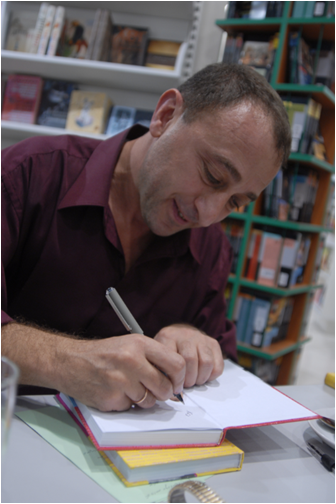But the question is: What does David get from Martin? Sure, David was glad to play the role of patron, to feed poor Martin some sushi or pizza. It could be assumed that he is also tickled by pride—the opportunity to teach a beginning author the craft of literature.
Nonsense! David latched onto this Pole like a leach. He grasped Martin like a drowning man in desperation grabs onto anything that floats. In just the same way, old age, envious and grumbling, clutches at youth, or darkness clings to light. David comes to life around Martin, he forgets about the vanity that once suffocated him. The writer’s spirit is resurrected by this homeless man.
David observes Martin from a distance and then slowly slips into his denim suit and heavy black boots, into his wound- and scar-covered skin, even into the swollen gums from which spring the half-rotten stumps of his teeth. David could then see the world in all its wonder: the moon, seagulls and flowers, even its filth—everything around changed in appearance, merged into One Sound, into the fullness and depth of the Word.
And Martin, like a golden nugget, reflects sparks of light. He is happy not to live on the street, that he doesn’t drink anymore, that he’s writing.
Not long before, when they had been at McDonald’s and translated the next chapter, David began to make plot suggestions. He suggested making the hero of the next story—Donald—a drunk and throwing him from a pier into the ocean. An effective little ending. But Martin, the literary dummy, stood up for his hero. He was unusually obstinate, affirming that Donald, the musician and sentimental alcoholic, is alive, that he had seen him recently, though he was drunk and beaten up. Donald sang ‘Let It Be’ and then begged Martin for “10 bucks for the concert.” They would have talked some more, but Martin had to rush to work. Why would he kill someone like Donald? So that literary trifles could prevail over the beauty of life’s truths?
“You American writers let your emotions out right away, at once dotting all of your ‘i’s. But we Europeans are different. We love doing things gradually; the essence should be uncovered only with each new word. You American don’t have enough restraint and patience, that’s why you can’t maintain literary forms.” Thus said Martin, who had only graduated from high school in his Polish village with a C average.
 Petr Nemirovskiy
Petr Nemirovskiy